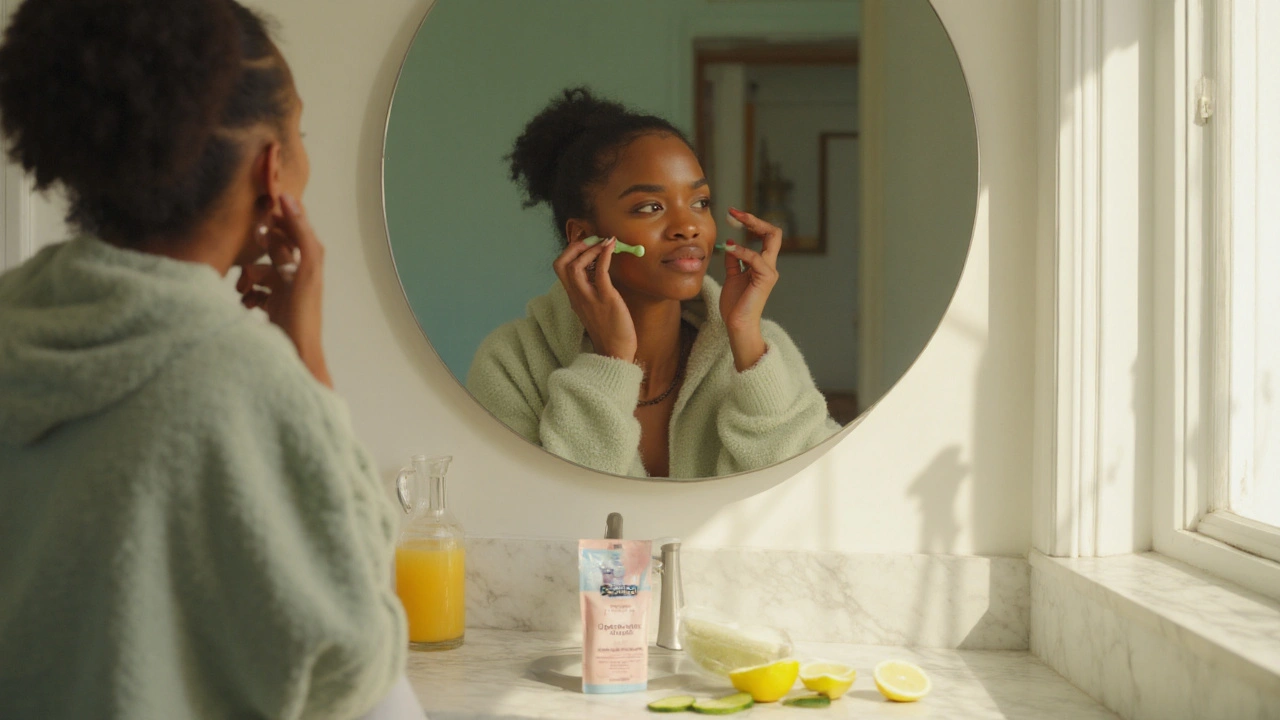Fluid Retention & Alcohol: What’s Going On and How to Fix It
If you’ve ever felt puffy after a night of drinking, you’re not imagining things. Alcohol messes with the body’s fluid balance and can leave you holding onto extra water. Understanding why this happens makes it easier to stop the swelling before it becomes a habit.
Why Alcohol Triggers Water Retention
First off, alcohol is a diuretic – it makes you pee more. That sounds like it should get rid of fluid, but the opposite often occurs. When you lose water quickly, your body releases vasopressin (also called antidiuretic hormone) to hold onto any remaining fluid. The result? Your kidneys start re‑absorbing water instead of letting it pass out.
Alcohol also raises levels of cortisol, a stress hormone that pushes the kidneys to retain sodium. More salt means more water stays in your bloodstream and tissues, leading to that swollen feeling around the belly, face, and ankles.
Practical Ways to Beat the Bloat
1. Hydrate smarter. Drink a glass of plain water between each alcoholic drink. This dilutes the alcohol and gives your body enough fluid so it won’t over‑react with vasopressin.
2. Keep electrolytes in check. A pinch of salt or an electrolyte drink can balance the sodium spike caused by alcohol. Choose low‑sugar options to avoid extra calories.
3. Limit salty snacks. Chips, pretzels and processed foods are common bar companions. Cutting back on them reduces the amount of sodium your kidneys have to hold onto.
4. Move after drinking. A short walk or gentle stretch helps circulation and encourages fluid movement out of your tissues. You don’t need a marathon, just 10‑15 minutes of light activity.
5. Choose lower‑alcohol drinks. Beer and sweet cocktails often have higher alcohol content than wine or spirits mixed with soda water. Swapping to a lighter option reduces the diuretic punch.
Remember, you don’t need to quit drinking entirely if you enjoy it socially. Small adjustments can make a big difference in how your body handles fluid.
Watch for signs that fluid retention is getting out of hand: persistent swelling in the lower legs, sudden weight gain of more than two pounds overnight, or a tight feeling around the waist after drinking. If these symptoms stick around for several days, consider cutting back on alcohol and speaking with a healthcare professional.
In short, the bloat you feel isn’t just “extra calories” – it’s your body’s response to hormonal shifts caused by booze. By staying hydrated, balancing electrolytes, watching salt intake, moving a bit, and picking lower‑alcohol drinks, you can keep that unwanted puffiness at bay while still enjoying a night out.

Oedema and Alcohol: Causes, Risks, and What to Do
Swollen ankles or puffy face after drinking? Learn why alcohol causes oedema, when it’s serious, and practical steps to reduce swelling and stay safe.
